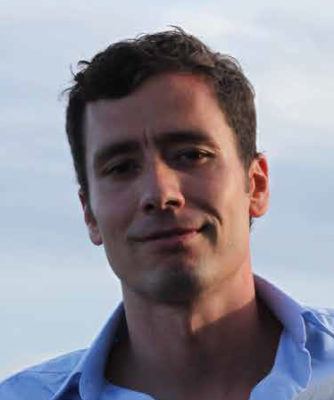
Between 1992 and 1995, a war killed more than 100,000 people in the country formerly known as Yugoslavia. Kenan Trebincevic was 11 when the conflict destroyed the life of his nonreligious Muslim family in the town of Brcko, Bosnia. Christian Serbs targeted them, and his father and brother were sent to a concentration camp. Eventually, the family escaped to the U.S. In 2014, Trebincevic published The Bosnia List: A Memoir of War, Exile, and Return (Penguin), co-authored with the journalist Susan Shapiro. Trebincevic gave FIT’s annual World Affairs Lecture on October 22.
In Brcko, his family “never even went to a mosque,” he told the FIT audience. The town was religiously diverse: “32 percent Christian Serbs; 17 percent Croats, who practiced Roman Catholicism; and 45 percent Muslim.” It didn’t matter. Overnight, neighbors became enemies. His beloved karate teacher, a Serb, called him a “slime-nosed booger,” and tried to shoot him. Complicated questions about identity confused the little boy: “Are you a Bosnian Yugoslavian, or Muslim? Who decides who you are? At age 12, I learned it was those in power with weapons who could decide.”
Once in the U.S., the Trebincevics settled in Connecticut, where they endured a different sort of hardship. The parents struggled to find work, and moved four times in two years. After 9/11, the family was regarded with suspicion. Other children bullied Kenan, calling him a “stupid immigrant.” Eventually, he made his way into a profession as a physical therapist. He remains critical of American politicians and skeptical of the United Nations—which, he pointed out, failed to stop genocides in Bosnia and Rwanda, and the present-day persecution of Uighurs, a mostly Muslim group in China.
One student asked how Trebincevic was able to process the trauma of the conflict, especially since he experienced it at such a young age. Trebincevic said a return trip to the country in 2011 helped him face his past. Also, “writing the book was cathartic.” Another student wondered what meaning could be taken from Trebincevic’s experience. Acknowledging that some politicians have tried to prevent ethnic violence, he said, “The best message is, ‘Vote.’”
The Department of Social Sciences’ World Affairs Lecture Series fulfills FIT’s mission to foster an understanding of diverse cultures and politics from international and domestic perspectives. It also embraces, supports, and expands upon the president’s campus wide initiative on civility. The lecture was presented in partnership with the Presidential Scholars program. Emre Özsöz, associate professor, Social Sciences, moderated the event.




